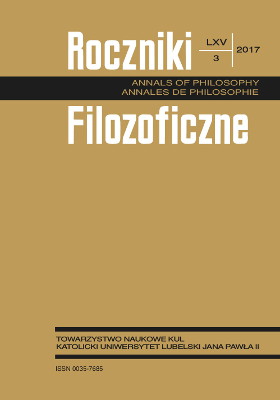Doctrinal Controversies of the Carolingian Renaissance: Gottschalk of Orbais’ Teachings on Predestination
Doctrinal Controversies of the Carolingian Renaissance: Gottschalk of Orbais’ Teachings on Predestination
Author(s): Andrzej P. StefańczykSubject(s): Philosophy, History of Philosophy, Philosophy of Middle Ages
Published by: Towarzystwo Naukowe KUL & Katolicki Uniwersytet Lubelski Jana Pawła II
Keywords: predestination; free will; foreknowledge; grace; nature; God; the reprobate; the elect
Summary/Abstract: The article attempts to characterize three key doctrinal controversies in the Carolingian Renaissance, namely: the disputes over the Eucharist, the so-called trina deitas, and predestination. The core of the article is an exposition of the controversy concerning predestination, whose main protagonist is Gottschalk of Orbais. The article discusses four crucial issues related to the problem: (i) the concept of God, (ii) the understanding of grace, nature and free will, (iii) the relation of foreknowledge to predestination, and (iv) the doctrine of redemption, i.e., specifically the relationship between justice and mercy. The article is largely an attempt at an interpretation of the texts of the epoch, mainly those of Gottschalk of Orbais and his adversary, Hincmar of Reims. The conclusions point to difficulties in the issues discussed and outline what attempts at solving this problem have taken place in the coming centuries.
Journal: Roczniki Filozoficzne
- Issue Year: 65/2017
- Issue No: 3
- Page Range: 53-70
- Page Count: 18
- Language: English

